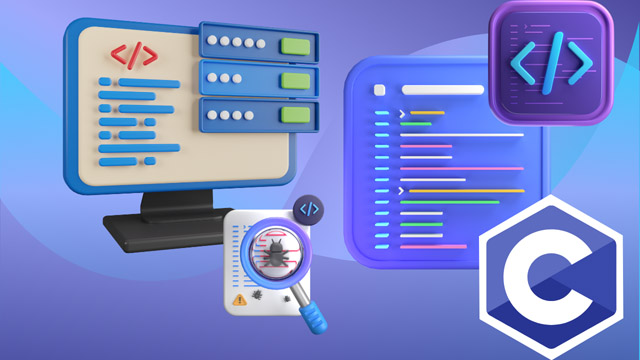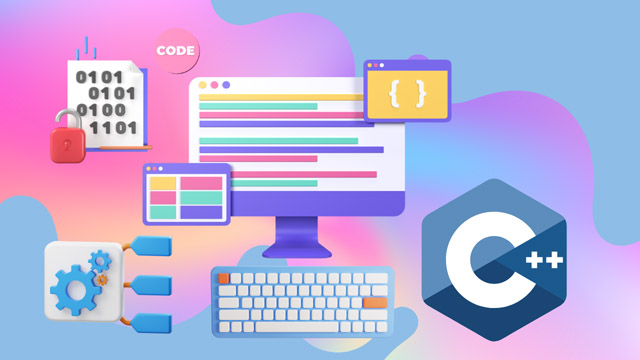This concept of physical objects communicating and interacting with each other online is referred to as the Internet of Things or IoT. This online network of physical objects is accomplished through the use of types of sensors, actuators and RFID tags. Installing these tags inside a physical object gives it the ability to be monitored and controlled remotely through the Internet. This eliminates the need for humans to constantly enter and monitor data. Instead, objects can communicate directly with each other, without the need for a person to link them together.

KLiC IoT
Do you know that, computers, smartphones and tablets are not only the objects, which are able to connect to the Internet?
Nowadays, nearly everything around us — from animals and household lights to human beings and cars — has the ability to be brought online to interact with other machines.
Introduction
Who Should Join
- Electronics and Engineering Students studying electronics, electrical engineering, or computer science who want hands-on experience with IoT systems and hardware.
- Aspiring IoT Developers interested in building IoT solutions, such as home automation systems, smart devices, and sensor-based projects.
- Professionals in IT, automation or Embedded Systems who want to enhance their knowledge of IoT technologies.
- Beginners in Electronics – Individuals with a basic understanding of electronics and programming who want to explore how IoT devices are developed and controlled.
- Individuals who enjoy DIY electronics projects and want to learn how to create smart systems using Arduino, NodeMCU, and sensors.
- Educators and Trainers who are developing IoT-related curricula and want to understand the tools and projects that can be implemented.
- Business owners or innovators interested in exploring IoT for developing smart products or solutions.
What you'll learn ?
If you are curious about how devices are controlled remotely using mobile devices then this course is for you….
In the course, learner will examine the concept of IoT. Learner will also look at the ‘things’ that make up the Internet of Things, including how those components are connected together, how they communicate, and how they add value to the generated data. After completing this course learner can design and built IoT system for home/office.
After completing this course, Learner may get various Career Opportunities like:
- IoT System Design Engineer.
- IoT software developer.
- IoT product manager.
- IoT solution Architect.
- IoT research developer.
- IoT service manager and so on…
Certification
- MKCL provides certificate to the KLiC learner after his/her successful course completion.
Academic Approach
The academic approach of the courses focuses on the “work-centric” education i.e. begin with work (and not from a book!), derive knowledge from work and apply that knowledge to make the work more wholesome, useful and delightful. The ultimate objective is to empower the Learner to engage in socially useful and productive work. It aims at leading the learner to his/her rewarding career as an employee or entrepreneur as well as development of the community to which s/he belongs. Learning methodology:
- Step -1: Learners are given an overview of the course and its connection to life and work.
- Step -2: Learners are exposed to the specific tool(s) used in the course through the various real-life applications of the tool(s).
- Step -3: Learners are acquainted with the careers and the hierarchy of roles they can perform at workplaces after attaining increasing levels of mastery over the tool(s).
- Step -4: Learners are acquainted with the architecture of the tool or tool map so as to appreciate various parts of the tool, their functions, utility and inter-relations.
- Step -5: Learners are exposed to simple application development methodology by using the tool at the beginner’s level.
- Step -6: Learners perform the differential skills related to the use of the tool to improve the given ready-made industry-standard outputs.
- Step -7: Learners are engaged in appreciation of real-life case studies developed by the experts.
- Step -8: Learners are encouraged to proceed from appreciation to imitation of the experts.
- Step -9: After the imitation experience, they are required to improve the expert’s outputs so that they proceed from mere imitation to emulation.
- Step-10: Emulation is taken a level further from working with differential skills towards the visualization and creation of a complete output according to the requirements provided. (Long Assignments)
- Step-11: Understanding the requirements, communicating one’s own thoughts and presenting are important skills required in facing an interview for securing a work order/job. For instilling these skills, learners are presented with various subject-specific technical as well as HR-oriented questions and encouraged to answer them.
- Step-12: Finally, they develop the integral skills involving optimal methods and best practices to produce useful outputs right from scratch, publish them in their ePortfolio and thereby proceed from emulation to self-expression, from self-expression to self-confidence and from self-confidence to self-reliance and self-esteem!
Syllabus
- Introduction to IOT
- Introduction to Arduino Board
- Arduino IDE
- TinkerCAD
- Breadboard
- LED Bar
- Piezo Buzzer
- Serial Monitor
- Push Button
- Proximity Sensor
- Temperature and Humidity Sensor
- Ultrasonic Sensor
- LCD
- LDR Sensor
- DC Motor
- Servo Motor
- RFID
- Bluetooth Communication
- RTC Module
- Introduction to NodeMCU
- NodeMCU-Blynk-DHT
- Case Study-Home Automation
- IOT Projects for Practice
Evaluation Pattern
Evaluation Pattern of KLiC Courses consists of 4 Sections as per below table:
| Section No. | Section Name | Total Marks | Minimum Passing Marks |
|---|---|---|---|
| 1 | Learning Progression | 25 | 10 |
| 2 | Internal Assessment | 25 | 10 |
| 3 | Final Online Examination | 50 | 20 |
| Total | 100 | 40 | |
| 4 | SUPWs (Socially Useful and Productive Work in form of Assignments) | 5 Assignments | 2 Assignments to be Completed & Uploaded |
MKCL's KLiC Certificate
The certificate will be provided to the learner who will satisfy the below criteria:
- Learners who have successfully completed above mentioned 3 Sections i.e. Section 1, Section 2 and Section 3
- Additionally, learner should have completed Section 4 (i.e. Section 4 will comprise of SUPWs i.e. Socially Useful and Productive Work in form of Assignments)
- Learner has to complete and upload minimum 2 out of 5 Assignments
Courses Fee Structure from 01 July, 2025 Onwards
KLiC 60 hour course fee applicable from 01 July, 2025 all over Maharashtra
| KLiC Course Duration | MFO: MKCL Share (Including 18% GST) |
ALC Share (Service Charges to be collected by ALC) |
|---|---|---|
| 60 hours | Rs. 500/- | Rs. 2,500/- |
* Above mentioned fee is applicable for all Modes of KLiC Courses offered at Authorised Learning Center (ALC) and at Satellite Center
* Total fee is including of Course fees, Examination fees and Certification fees
* MKCL reserves the right to modify the Fee anytime without any prior notice
KLiC Courses Fee Structure upto 30 June, 2025
| Region | Total Fee (Rupees) |
| MMRDA, PMRDA and Rest of Maharashtra | 3000/- |
* Above mentioned fee is applicable for all Modes of KLiC Courses offered at Authorised Learning Center (ALC) and at Satellite Center
* Total fee is including of Course fees, Examination fees and Certification fees
* MKCL reserves the right to modify the Fee anytime without any prior notice



